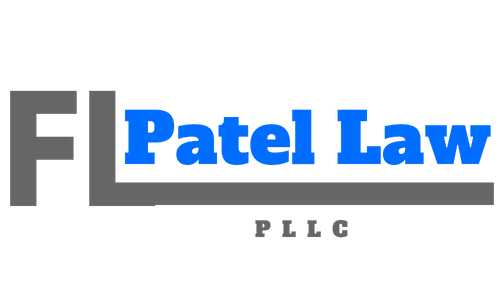Beneficial Ownership Information (BOI) Reporting Requirements (December 2024 Update)
Important Update: December 2024 Legal Development
Updated: December 9, 2024
On December 3, 2024, in Texas Top Cop Shop, Inc. et al. v. Garland et al., No. 4:24-cv-478-ALM (E.D. Tex.; 12/24), the U.S. District Court for the Eastern District of Texas issued a nationwide preliminary injunction suspending the Corporate Transparency Act’s enforcement. This ruling affects an estimated 32.6 million businesses across the United States, according to FinCEN’s impact analysis.
This injunction comes amid varying judicial interpretations across districts. The Eastern District of Virginia and District of Oregon have upheld the CTA’s constitutionality, while the Texas court found potential constitutional concerns. According to FinCEN’s December 7, 2024 alert, voluntary reporting remains available through their secure filing system.
Prior to this injunction, the deadline for most companies to report was coming upon December 31, 2024 to file their initial report. This deadline and all other deadlines have now been suspended until further notice.
FL Patel Law Guides:
- How to File Your Initial Beneficial Ownership Information Report » Business Lawyer Tampa
- DIY Guide on Filing Beneficial Ownership Information Reports for LLCs and Corporations Formed Before January 1, 2024 » Business Lawyer Tampa
Understanding the Corporate Transparency Act
The Corporate Transparency Act was enacted on January 1, 2021, as part of the Anti-Money Laundering Act of 2020 (AMLA) within the National Defense Authorization Act for Fiscal Year 2021 (Pub. L. 116-283, 134 Stat. 3388). The law amends the Bank Secrecy Act (31 U.S.C. 5336) to establish new reporting requirements for business entities.
At its core, the CTA aims to prevent financial crimes by creating greater transparency in business ownership structures. The law establishes a secure, non-public database maintained by FinCEN, a division of the U.S. Treasury, designed to help law enforcement and financial institutions identify the true owners of corporate entities.
The scope of the CTA extends to most domestic corporations, LLCs, and similar entities formed through state or tribal agency filings, as well as foreign entities registered to conduct business in the United States. However, the law includes thoughtful exemptions for certain types of businesses.
Large operating companies face different requirements under the CTA. To qualify for exemption, a company must maintain a physical presence in the United States, employ more than 20 full-time employees, and generate over $5 million in gross receipts or sales, as reported on federal tax returns. The law also exempts publicly traded companies subject to SEC reporting requirements and nonprofits that already undergo federal reporting obligations.
Required Information and Reporting Process
When it comes to reporting beneficial ownership information, the CTA seeks details about individuals who either own or control significant portions of a company. This includes anyone who owns at least 25% of the company’s equity or exercises substantial control through senior officer positions, director appointments, or influence over major business decisions.
For each beneficial owner, companies must provide comprehensive identifying information. This includes their full legal name, date of birth, current residential address, and a government-issued identification number, typically from a driver’s license or passport. The law also requires submission of company details, such as the legal name, any trade names used, principal place of business, and formation information.
Compliance Timeline and Updates
Prior to the current injunction, the CTA established a structured timeline for compliance. Companies formed before 2024 were given until January 1, 2025, to file their initial reports. Those created in 2024 received a 90-day window from their formation date, while companies formed after January 1, 2025, would have needed to file within 30 days of formation.
Beyond initial filings, the CTA recognizes that business ownership and control can change over time. Companies would need to report changes to beneficial ownership within 30 days of any modification. This ensures the database maintains current and accurate information about company control and ownership.
Basic Filing Questions
Q: What exactly is a BOI report and what purpose does it serve?
A: A Beneficial Ownership Information (BOI) report is a federal filing that identifies who owns and controls your business. It’s designed to help law enforcement prevent financial crimes like money laundering and fraud. Think of it as a way to create transparency about who’s really behind business entities in the United States.
Q: How often do I need to file a BOI report?
A: You only need to file once initially, not annually. However, you must file an updated report within 30 days if there are changes to your beneficial owners’ information or significant company details. This includes changes in ownership percentages, control persons, or contact information.
Q: Can I prepare and file the BOI report myself?
A: Yes, you can file yourself through FinCEN’s online portal. The process is designed to be accessible to business owners. However, if you’re dealing with complex ownership structures or have questions about exemptions, consulting with a legal professional might be worthwhile.
Ownership and Control Questions
Q: What makes someone a “beneficial owner” under the CTA?
A: A beneficial owner is anyone who either owns 25% or more of the company OR exercises “substantial control” over the company. Substantial control includes:
- Serving as a senior officer
- Having authority to appoint/remove senior officers or board members
- Making important decisions about the business’s future
- Having substantial influence over important business matters
Q: If my company is owned by another company, who do I report?
A: You’ll need to “look through” the entity owner to identify the individual people who ultimately own or control your company. For example, if your LLC is owned by another LLC, you’ll need to report the individuals who own or control that parent LLC (assuming they meet the ownership or control thresholds).
Q: What if ownership is split among family members?
A: Each family member who owns 25% or more must be reported. Additionally, any family member who exercises substantial control (regardless of ownership percentage) must be reported. Family relationships don’t change the reporting requirements.
Special Situations
Q: What if I can’t get the required information from a beneficial owner?
A: Document all your attempts to obtain the information. This creates a record of your good-faith efforts to comply. However, you’re still legally required to file complete information. Consider:
- Sending formal written requests
- Working through legal representatives
- Consulting with your own attorney about options, remember, beneficial owners who refuse to provide information may be subject to penalties themselves
Q: What if my company is currently inactive but not formally dissolved?
A: Unless your company qualifies for the specific “inactive business” exemption, you likely still need to file. To qualify as inactive, your company must:
- Have been in existence before January 1, 2020
- Not be engaged in active business
- Not be owned by a foreign person
- Not have experienced any ownership changes in the last 12 months
- Not have sent or received funds over $1,000 in the previous 12 months
Q: How do I handle trusts in BOI reporting?
A: The reporting requirements for trusts can be complex. Generally:
- If a trust owns 25% or more of the company, report the trustees, trust beneficiaries, and trust grantors who have substantial control
- If a trust is part of a more complex ownership structure, consult legal counsel to determine exactly who needs to be reported
Technical Filing Questions
Q: What happens if I make a mistake on my BOI filing?
A: If you discover an error in your filing:
- File a corrected report as soon as possible
- Take advantage of the 90-day safe harbor period for correcting inadvertent mistakes
- Keep records of when you discovered the error and how you corrected it
Q: Is the information I submit in my BOI report public?
A: No. BOI reports are confidential and stored in a secure database. Access is strictly limited to:
- Authorized government agencies for law enforcement purposes
- Financial institutions (with company consent) for customer due diligence
- Regulators for supervision purposes
Q: Do I need a FinCEN ID number, and how do I get one?
A: A FinCEN ID is optional but can be helpful, especially if you’re involved with multiple companies. Benefits include:
- Not having to repeatedly submit personal information
- Easier updates when information changes
- Additional privacy protection You can apply for a FinCEN ID through the BOI E-Filing System
Cost and Time Questions
Q: Are there any fees associated with BOI filing?
A: No, there are no government fees for filing BOI reports or obtaining FinCEN IDs. However, if you choose to use legal or professional services to help prepare your filing, you’ll need to pay for those services.
Q: How long does it take to complete a BOI report?
A: For a company with simple ownership structure, expect to spend 1-2 hours gathering information and completing the filing. More complex structures may take longer, especially if you need to:
- Track down information from multiple owners
- Analyze control relationships
- Determine which exemptions might apply
Q: How quickly will I receive confirmation of my filing?
A: The FinCEN filing system provides immediate confirmation when your report is successfully submitted. However, this doesn’t mean your filing has been reviewed or approved – it just confirms receipt.
Compliance and Enforcement
Q: What are the penalties for not filing or filing late?
A: The penalties can be severe:
- Civil penalties of up to $500 per day
- Criminal fines up to $10,000
- Imprisonment up to two years for willful violations. The severity typically depends on factors like willfulness and duration of non-compliance
Q: How will FinCEN know if my information is accurate?
A: FinCEN has various methods to verify information, including:
- Cross-referencing with other government databases
- Investigating tips and complaints
- Conducting audits
- Cooperating with law enforcement agencies
Q: What should I do if my company’s circumstances change after filing?
A: File an updated report within 30 days of any change in:
- Beneficial ownership
- Control persons
- Contact information
- Company details. Keep documentation of the changes and when they occurred
Would you like me to expand on any of these areas or add additional questions about specific scenarios?
This guide is for general information purposes only and is not a substitute for actual legal guidance. Your information will be kept private and confidential. It will not be sold to any third parties. By submitting this information the user consents to receive communication via text and email from FL Patel Law PLLC.
Need Help?
If you’re unsure about your obligations under the CTA or need assistance preparing your BOI report, our team is here to help. Schedule a consultation or explore our DIY BOI Filing Guide for step-by-step instructions.
Stay tuned for further updates as the CTA continues to evolve.





